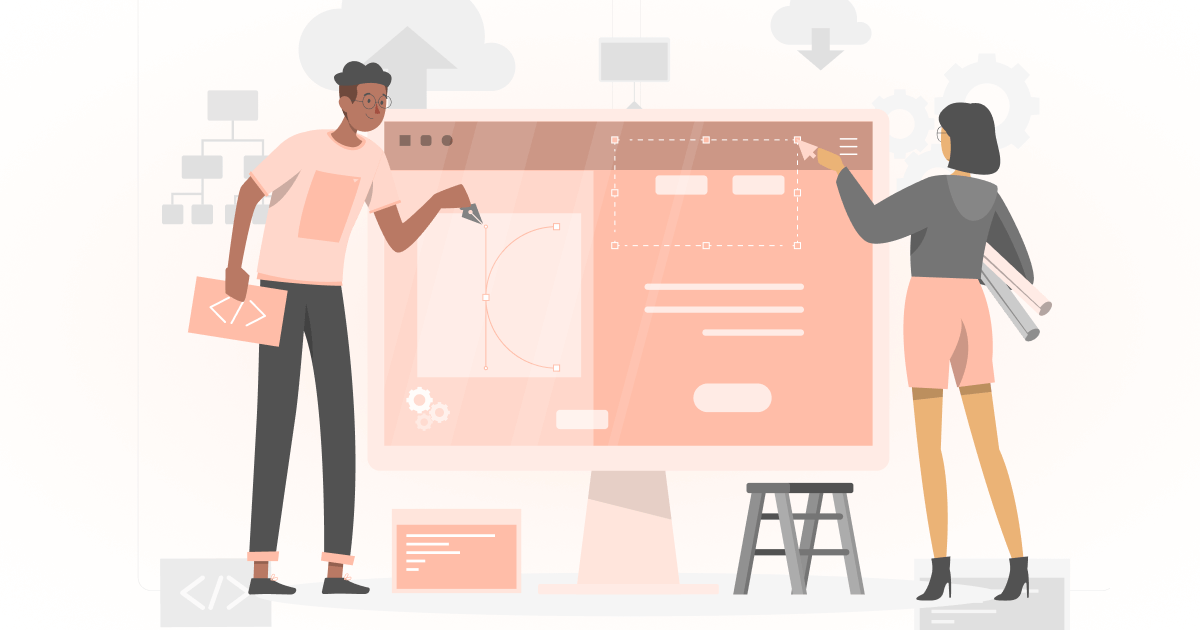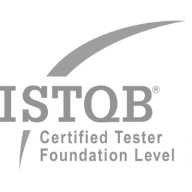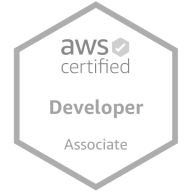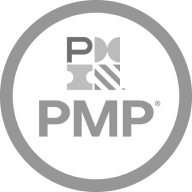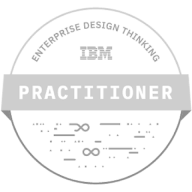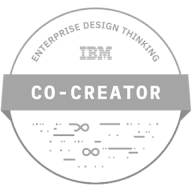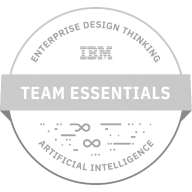
Main Healthcare APIs for Software Development: Benefits and Use Cases
Want to know more? — Subscribe
Imagine a world where all health apps, wearables, clinics, hospitals, private practices, and third-party vendors exchange data seamlessly. Using APIs in healthcare software development is just about that.
APIs significantly facilitate interoperability. You can think about it as a reflection of the medical industries' need to coordinate patient care across an ever-larger subset of players. There is some ability to do that now, but improvement is definitely needed.
A survey conducted by Black Book Research proves it. According to the report, more than 90% of US patients complain about the lack of data exchange. And two out of three respondents will consider changing their doctor or healthcare provider because of this.
But what exactly does API stand for in healthcare? Today, we’ll explain what these two concepts have to do with each other.
Let us start with an API, an application programming interface. It is a set of procedures and functions that allow the creation of applications that access the data or features of an app, operating service, or another service that is separate from it.
Using APIs, the healthcare providers can transfer data between EHR/EMR, informational systems, networks, healthcare applications, and devices, managing it effectively and combining it in one place. Saying simply, APIs in the healthcare industry, at its core, is all about the sending of information from one system to another.
Suppose your healthcare provider can input your information into a unified hospital database with health APIs. This way, all the data on your health record would be in one place, along with information about other patients. It is just what we did in our HIPAA Telmed application. It’s only one example, though; there are many more.
So, let’s look at APIs in more detail. Based on our experience, we will tell you about the most common APIs use cases and types, the challenges of their integration, and even more.
Why Use APIs for Healthcare App Development?
Medical app development APIs can offer you many benefits. We have selected the top five of them for you.
Read Also: How to Make Medical Scheduling Software Like Doctolib
So, here are the benefits of integrating healthcare APIs in medical software:
Minimize Unnecessary Work
APIs are already a set of ready-made tools and functionality. With them, you can develop medical software much faster. APIs not only free your team from unnecessary work; they save you money and speed up the time of your product’s launch.
Ensure Secure Data Storage
Become a market leader by providing advanced data security standards. The APIs you implement must guarantee multi-level protection and comply with regulatory requirements like HIPAA.
Read also: Guide on HIPAA Compliant Software Development
Share Medical Data Efficiently
APIs are all about fast and seamless data exchange. The patient can easily view all his medical records, share them with the doctor and receive medical care as quickly as possible. It is made possible by simplified solutions for managing private medical information.
Promote Innovation in Medicine
The quality and accuracy of medicine are founded primarily on the evidence base. APIs help build this base by making it easier to access patient data. In this way, companies can cooperate and make significant breakthroughs in the medical field.
Get the Best Treatment Results
APIs allow you to connect multiple systems. It, in turn, will enable the doctor to get a complete picture of his patient’s condition. Then the physician will be able to make more accurate treatment regimens, which will result in better treatment results.
Healthcare APIs Use Cases
We’ve learned about the benefits of using APIs for healthcare application development. But where exactly can you apply these technologies? Let us clarify.
Bridging the Gap Between Doctors and Patients
If you are:
- A healthcare software provider (or own a healthcare organization) seeking to enable mobile and web diagnostic tools for your users
- A research institution looking for new ways to connect with doctors and patients
- A healthcare practitioner or hospital aiming to provide faster and real-time patient data or health records
In all of the above scenarios, medical APIs would help.
Just consider the next case of using API in the medical system. Persons with diabetes need to record their blood sugar levels, while the doctors need to control that and adjust the treatment accordingly.
A health API would facilitate the management and recording of physician-reported data. In easier words, the data on patients’ health records collected with, for example, IoT devices, can instantly be reflected in doctors’ dashboards.
Then based on that, the doctors can adjust to treatment that is instantly reflected in the diabetes platform for patients and saved in the physician’s system. In such a way, decision-makers can cut overhead costs and improve the efficiency of the treatment where APIs are involved.
Integrating Healthcare Operations
Another application of API in healthcare is a clinical API a hospital could develop for employees’ use. For instance, it could better predict the staff’s requirements and improve data management. It would reduce overtime costs and better serve patients.
Clinical API could also facilitate record sharing with other hospitals and medical offices. It would lessen the possibility of medical errors when hospital staff is focused on patient care instead of paperwork. Both time and money could be saved.
Providing Data Integration
Patients always want to have as much control over their health data as possible. APIs help make that a reality. They let patients provide health records to new facilities without making phone calls to receptionists.
Patients can leverage all the advantages of health fitness trackers and other smart devices since an API could connect such devices with an EHR system. It will assist doctors with diagnosis and treatment, which is a win-win for patients and doctors both.
Read more: Hospital Cybersecurity Checklist: 10 core steps that you need to check now
Mobile Health
mHealth apps are becoming more common among users. For example, the number of such app downloads in the United States jumped by 30% at the beginning of the pandemic in 2020.
But what do APIs have to do with this? These tools enable smooth sharing of patient data via mobile devices, virtual appointment booking, video visits of doctors, and more.
Patient Insurance Management
You can connect your product’s APIs with insurance companies. Thus, these organizations would be able to determine the patient’s coverage for medication or a specific procedure almost instantaneously.
Of course, these are not all the medical APIs use cases. There is much more. To showcase you that, here is an illustration of some other medical system parties who can benefit from data exchange and management with APIs:
Read also: How to Make a Video Chat App
Types of Healthcare APIs
The APIs in a marketplace can be considered products if their consumption patterns warrant such a designation. In healthcare, common patterns might include finances and billing, scheduling, patient registration, ancillary, clinical, public health, and IoT.
Here are the main types of APIs for healthcare software development:
Registration API
The purpose of the registration APIs is to handle the registration functions involved with many EMR/EHR systems. By utilizing these registration APIs, engineers develop easy-to-use interfaces for patients. Then these can be integrated with various EMR systems to manage patient-specific data exchanges.
Scheduling API
Patients love the ability to schedule doctor appointments within the app. For this purpose, you could also use the scheduling API to integrate the appointment booking feature, send reminders, synchronize with other calendars, or check for open appointment slots. You could update, cancel, or reschedule appointments, again saving the need to make a phone call.
Financial API
Financial APIs for hospitals help manage money transactions between different healthcare providers and other parties like insurance agencies, pharmacies, etc. These APIs can be narrowed down into different categories. Some of those might be billing APIs or claims APIs.
Integrated this technology into your system or app, the doctors can automate payment posting, e.g., eBilling, or generate and send prescriptions to patients or insurance agencies.
It has become a must-have feature for mHealth apps that allows patients to pay with smartphones. Samely, this is a very convenient function for insurance and other medical parties. All of these become much easier where APIs are used.
Hospital Management API
Hospital management APIs can handle any clinical data exchange through EHR/EMR systems of different standards. Perhaps you have a mature API platform capable of data format transformations. It would connect to multiple systems and provide data feeds whenever a consumer made such requests.
These systems would include data streams like treatment plans, patient medication data, immunization details, and detailed family medical history. The physician looks at this data and makes decisions about the patient’s treatment.
By using clinical API, data is more secure and readily accessible. If a speedy decision is needed about an ailing patient, this will allow consulting doctors to make it.
Ancillary API
Ancillary APIs can integrate into one place information stored in the systems separated from core medical functions. Those might include radiology, nutrition, pharmacy, laboratory, telemedicine platforms, etc.
For example, this API application might be helpful when hospitals need to exchange data with external pharmacies regarding prescriptions and refill requests.
A medical API might also help in laboratory result data exchanges with different information systems or managing dietary orders with an external nutrition system. It is particularly helpful in an era where diabetes is on the rise.
Public Health API
Public health APIs can exchange reportable clinical data to the public, professional, federal registries, or research organizations. It can be used to track public health in the case of a threat, like the ongoing Covid-19 pandemic. These APIs also enable easy data exchanges for public health surveillance like EHR systems.
IoT and Activity Tracker API Products
Recently, there has been a great deal of growth in wearable health and activity monitoring devices. The size of the global wearable technology market will rise at a CAGR of 13.8% from 2021 to 2028.
The data streams from wearables represent an exciting new aspect of personal health monitoring. Sending these streams through a consumable platform might accelerate the innovation of patient-centric health applications. However, such personal data is only shared if you give explicit permission.
Of course, it depends on API type, but these all types generally work in the following way:
You may also find interesting how to create a doctor appointment app.
Top Healthcare APIs Marketplace
If you want to integrate the API into your healthcare product, you have two options. The first is to create a custom API for healthcare software development. And the second is to find the API you need on available marketplaces.
We have selected the most common APIs in healthcare for you. Many of these APIs for healthcare developers are widely used in the development and deployment of medical software solutions.
Cloud Healthcare API
This API allows standardized, easy data exchanges between solutions built on Google iCloud and various healthcare apps. It features automated DICOM and FHIR that are value-added capabilities for de-identification. This API is a paid one, and its cost depends on several factors, particularly data storage and network consumption.
HealthKit
The HealthKit API serves as a repository for fitness and health data. It works primarily with Apple Watches and iPhones. Apps can communicate with HealthKit, but only with the user’s permission. Based on that data, their doctor can then assess their physical condition and recommend treatment options for various issues.
Box API
The Box API is all about managing your files, and not only in the area of healthcare. You can easily integrate it with a long list of healthcare apps. Patients can share and store documents on it with prescriptions, test results, and medical records. They can then pull those up if they visit a new doctor or a new lab, clinic, or another healthcare facility.
Human API
The Human API is a platform that has collected data from transactions such as financial claims, medications prescribed by pharmacies, lab test results, and medical records from hospitals.
This API for medical data handles data transfer and sharing between third-party data sources and identity user management. In other words, you can permit this API, and your data will be shared as part of a wide-scale compiling effort. It can be helpful in the future for various studies and public health initiatives.
GE Healthcare API
It can be considered healthcare-specific workforce management software. It is based in Hartford, Wisconsin, under the name API Healthcare.
Entities in the healthcare industry, such as hospitals and clinics, can use this healthcare API to cut costs and streamline workplace policies. One of the main ideas is to introduce new management strategies that will allow for smaller workforces, enabling the savings to be passed on to patients to drive down their care expenditures.
BetterDoctor API
Headquartered in San Francisco, BetterDoctor is currently one of the more trusted sources of validated doctor data. The services and data collected in this hospital API allow people to find doctors through consumer review sites.
It is also instrumental in letting patients browse health plan directories and provider groups. A patient can use BetterDoctor to see a nearby doctor’s specialty and whether they take a particular kind of insurance.
Doximity API
It is more of a doctor API intended for patients. It is an online network service set up for medical professionals to use. Over a million US healthcare providers have used it up to this point.
The members get curated medical news. They also have ways of communicating and collaborating through it. They can even do near-instant case collaborations that once would have required travel and days or weeks of meticulous note collecting.
The Doximity definition isn’t something with which you need to concern yourself. Just know that this is a useful API for medical professionals.
DrChrono API
DrChrono is a digital health technology company based in America. This medical office management API acts mostly as a billing service platform.
Patient care can be optimized with DrChrono for hospitals, but it works even better for smaller clinics and private practices. It features telehealth functionality, practice management, revenue cycle management, and mobile EHR. It works with the iPad, Apple Watch, iPhone, and desktop.
Eligible API
This API in the medical field builds versatile tools for patient healthcare. It is what you’d want to use as a doctor if you wished to provide a patient with a reliable estimate of your services, taking into account their healthcare provider. You can issue statements to them and deduct claims paid by their insurance. It is used today both by small startups and public companies worth billions of dollars.
Verified API
This medical API integrates with numerous databases that compile information from vision, medical, and dental plans. It also can connect with provider and network data, drug supply feedback, and information from other sources.
It is meant to be the intersection between technology and health insurance. You can use it to do a cost comparison of more comprehensive and detailed plans than ever before.
Getsafe API
The Getsafe API is a digital insurance company. You can use it to see transparent insurance plans that integrate machine learning technology.
The real difference is that you can quickly look at the plans and see what’s covered and what isn’t. The platform can help you figure out, from a statistical standpoint, what you’re likely to need as part of your individualized package. It can save you money in the long run.
Read also: Telemedicine App Development Guide
Challenges of APIs Integrations in Medical Apps
With advancements in technology, healthcare environments consist of a complicated mix of systems, databases, devices, processes, and applications. These serve physicians and patients, and there are always organizational challenges on how to combine and store all that data securely. So let’s look at the pitfalls of APIs Integrations in healthcare applications.
Privacy, Security, and Legacy Concerns
Medicine depends a lot on medical regulations. It’s no surprise as every person as a patient wants their data, e.g., personal health information (PHI), to be kept secure and private.
For that purpose, many have their own set of legal regulations regarding protecting medical data: HIPAA in the US, GDPR in Europe, PIPEDA in Canada, and DPA in the UK. All that has slowed down the growth of health APIs as they need to meet the requirements of these regulations.
Hopefully, most medical APIs provide safe data storage and exchange between all systems and networks with such technologies as encrypted protocol usage, blockchain, advanced authentication, and system access controls.
Technical Barriers
Many medical organizations are faced with the lack of technological resources, development standards, and low scalability of medical software. All of this slows down healthcare interoperability and affects the treatment quality of these healthcare providers.
Moreover, some healthcare providers use outdated software that does not support API integration. As a result, they keep exchanging data manually.
Financial Concerns
These issues stem from a lack of financial resources in the healthcare system. Another reason is the low awareness that investments in healthcare interoperability improve the quality of medical services.
For sure, the costs of medical software development or implementing and optimizing current software require a lot of resources. But it’s a long-term investment for making healthcare systems much better.
Lack of IT Usability
An additional challenge in API integration into healthcare systems is the lack of full documentation and practical tools for developers’ testing, designing, and monitoring.
In such cases, it’s often challenging for healthcare providers to integrate API with their own development resources. The solutions for that might be the API dev community that provides feedback and insight into features or using external developers with already proven experience.
Find out our complete guide on medical app development.
Softermii Experience of APIs Integration in Healthcare Software
We believe that the future of the healthcare field lies in digital transformation. Our company strives to be a part of this progress. Therefore, we are actively involved in custom medical software development.
We adhere to all security protocols, such as HIPAA, GDPR, HL7, SOC2, and local privacy rules. All this is to ensure that your software meets the highest security standards.
We follow the same ideals when integrating APIs into medical products. Our team, in particular, can develop a custom API for the specific needs of your software.
Please find out more about our experience based on our recent cases.
HIPAA Telmed
It is a web-based application that provides seamless interaction between doctors and patients. This product offers such primary features as appointment management, video and audio calls, and document sharing. And, as the name suggests, this web application is HIPAA-compliant.
In particular, we integrated EHR into HIPAA Telmed. Now doctors can easily synchronize information about their patients in one database. Our team also provided impeccable video and audio calls thanks to WebRTC technology.
MediConnect
MediConnect is a mobile app that facilitates interaction between doctors and healthcare product companies. The application allows them to communicate via video and audio calls and buy and sell products in one place.
We’ve integrated the following APIs here:
- PayPal API: for convenient purchases directly in the application.
- VidRTC. It is our custom WebRTC-based solution, which enables video and audio communication.
- Azure: for speech recognition and instant translation.
Wrapping Up
A medical API is something that healthcare providers should take into consideration. There is no doubt that APIs are the key steps to healthcare interoperability, improved treatment, doctor-patient relationships, better cooperation, and research in medicine.
With our primary focus on medical software development, we can handle the API integration or develop a new one from scratch. Softermii has an experienced team of healthcare developers and many successful projects of different types and complexity using AI, AR, and blockchain.
If you plan to integrate the needed APIs into your medical network or build a new one, our team is ready to provide a free quote on your project with all the details. So, feel free to contact us.
Frequently Asked Questions
What are the main types of APIs in healthcare?
We single out the following API types: registration API, scheduling API, financial API, hospital management API, ancillary API, public health API, and IoT and activity tracker APIs.
What are the reasons for APIs Integration into the medical system?
The integration of APIs in healthcare software can bring you many benefits. Some of them are reducing unnecessary work, ensuring the secure storage and exchange of data, and the ability to promote breakthroughs in medicine.
What are the use cases of healthcare APIs?
There are many applications of healthcare APIs for medical app development. Some of them are mobile health, patient insurance management, integration of data and healthcare operations, and bridging the gap between doctors and patients.
What are the examples of popular healthcare APIs?
Just a few of them are HealthKit, Cloud Healthcare API, Human API, Doximity API, and Verified API.
What are the main challenges of API integration?
You may face security and privacy concerns, technical barriers and financial concerns within healthcare institutions, and a lack of IT usability.
How about to rate this article?
760 ratings • Avg 4.7 / 5
Written by:











